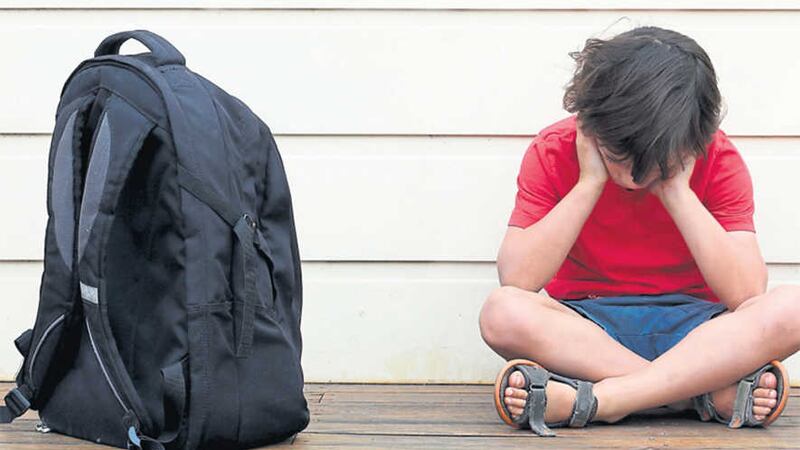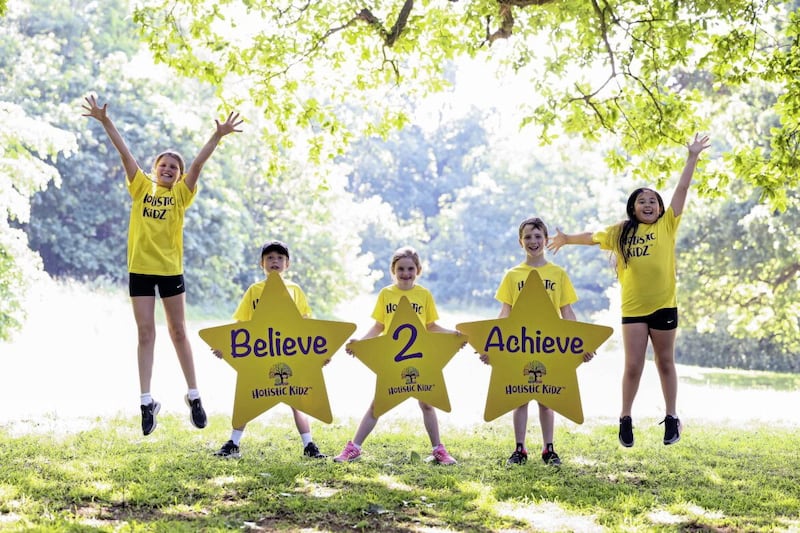A THIRD of children reported being bullied in the last 12 months, and half of them don't tell anyone about it.
But as a new survey to mark Anti-Bullying Week (November 16-20) reveals more than a quarter of young people bullied in school say it impacts their mental health, and that they experience anxiety, depression, self-harm and suicidal thoughts, the Anti-Bullying Alliance is urging young people, parents and teachers to Make a Noise About Bullying.
"What has come across really strongly from both young people and adults is that young people need support to talk about bullying," Lauren Seager-Smith of the Anti-Bullying Alliance, says.
"About half of young people don't report bullying to anyone when it's happening, which is a really serious issue."
The key aims of the week are:
:: To empower children to make a noise about bullying, whether it's happening to them or to someone else, face-to-face or online.
:: To help parents have conversations with their children about bullying, both as a way of preventing it, and to help children who are worried.
:: To encourage 'talking schools' where all children are given a safe space to discuss bullying and other issues, and are supported to report all forms of bullying.
:: To equip teachers to respond effectively when children tell them they're being bullied.
:: To raise awareness of the impact of bullying on children's lives if they don't tell anyone it's happening, with a focus on the impact on mental health.
"We can't just have young people speaking out without teachers responding appropriately, and parents being supported around the conversations with their children about bullying and what they should do," says Seager-Smith.
"Children are often quite worried about telling their parents, because of how they're going to respond.
"If we don't support children to speak out, schools aren't responding appropriately, and parents aren't supported to speak out about these issues, then children don't tell anyone about bullying and there can be a really serious impact on mental health."
While more than 16,000 children are absent from school at any one time because of bullying, over half of six to 15-year-olds don't know how to get help if they're being bullied. This is compounded by the fact the Anti-Bullying Alliance survey found that teachers and GPs feel ill-equipped to support children with mental health issues related to bullying.
Bullying is strongly linked to eating disorders, self-harm and suicide, and being a bullying victim increases the risk of being depressed later in life by more than half.
And it's not just the victims who feel the weight of bullying, as the bullies themselves are 30 per cent more likely to become depressed as adults.
Seager-Smith says that, in the past, there's been a tendency to provide more services for victims of bullying than interventions with children who bully. But now restorative approaches, where bullies meet their victims in a controlled environment and the devastating impact of their actions is much more evident, are being used very effectively.
"Restorative approaches work," says Seager-Smith. "If a child bullies at school and is then excluded, they're being punished but not learning about the impact of their behaviour, what needs to change and why.
"The benefit of a restorative approach is that the child understands the damage that's been caused and what needs to change, which is also much more helpful for the person on the receiving end of the bullying."
Overall, Seager-Smith stresses that children need to understand that it's vital to speak out about bullying, whether it's happening to them, or they've seen someone else being bullied.
"It's about breaking the taboo about bullying – there's still a sense that if you tell, you're a grass. Make a Noise is trying to break that, saying that if bullying's going on, you're not a grass - bullying is so serious that you could be saving someone's life.
"You shouldn't stay quiet about it, but breaking the culture of not telling is a challenge."
TOP TIPS FOR PARENTS
:: If your child is being bullied, don't panic. Explain that the bullying isn't their fault and together you'll sort it out.
:: Bullying should always be taken seriously and it's never your child's fault if they've been bullied.
:: Try and establish the facts. It can be helpful to keep a diary of events, and if the bullying is online, save or copy images and text.
:: Find out what your child wants to happen. Help to identify steps you can take; and the skills they have to help sort out the situation. Make sure you always keep them informed about any actions you decide to take.
:: You may be tempted to tell your child to retaliate, but this can have unpredictable results.Your child might get into trouble or get even more hurt. Instead, role play non-violent ways they can respond to the bullies. Show them how to block or unfriend people if the bullying is online and help them identify other friends or adults that can support them.
:: Encourage your child to get involved in activities that build their confidence and esteem, and help them to form friendships outside school (or wherever the bullying is taking place).
:: For more information about Anti-Bullying Week, see anti-bullyingalliance.org.uk/anti-bullying-week.








